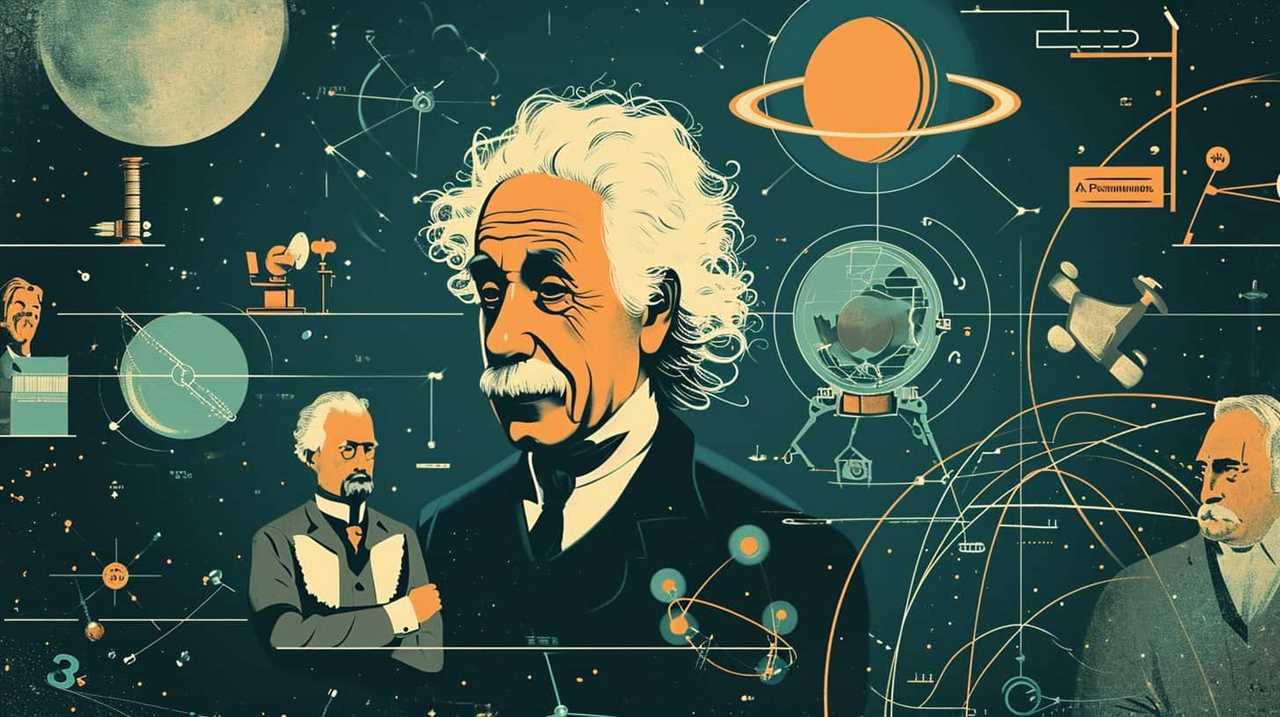Do you feel exhausted with the predictable and boring way of thinking? Do you desire a new viewpoint that will spark your mind and encourage creativity? Search no more!
We present to you 12 philosophical quotes that will set your rational thought on fire. Now, you might be thinking, ‘Philosophy is boring and irrelevant.’ But let me assure you, these quotes are anything but. They come from some of the greatest thinkers in history, like Descartes, Socrates, and Kant, who dared to challenge conventional wisdom and push the boundaries of knowledge.
Their words will challenge your beliefs, expand your horizons, and stimulate your creativity. So get ready to embark on a journey of intellectual exploration as we dive into these captivating philosophical quotes.
Key Takeaways
- Self-reflection and personal growth are essential aspects of leading an examined life and finding purpose.
- Knowledge and rationality play a significant role in understanding the world and questioning established beliefs.
- Autonomy and individual freedom are crucial for personal development and societal progress.
- Morality and legislation are interconnected, and collective decision-making is a powerful tool in shaping society.

Descartes: "I Think, Therefore I Am
We embrace Descartes’ famous assertion that through our ability to think, we validate our existence as rational beings. Descartes’ quote, ‘I think, therefore I am,’ has had a profound impact on modern philosophy and continues to shape our understanding of personal identity. This powerful statement challenges us to consider the connection between rational thought and the very essence of who we are.
Descartes’ quote revolutionized philosophy by placing an emphasis on the power of the mind. It highlights the idea that our ability to think is what ultimately defines our existence. Through rational thought, we’re able to navigate the complexities of the world and make sense of our experiences. This notion has paved the way for a deeper exploration of the mind, consciousness, and the nature of reality.
Furthermore, Descartes’ quote invites us to question the relationship between our thoughts and our sense of self. It suggests that our personal identity is intricately tied to our ability to engage in rational thought. By acknowledging our thoughts, we affirm our own existence and establish a connection between our minds and our sense of self.
In a world that constantly seeks innovation and new ideas, Descartes’ quote serves as a reminder of the importance of rational thought. It encourages us to value critical thinking and intellectual exploration as a means to understand ourselves and the world around us. By embracing Descartes’ assertion, we not only validate our existence, but we also empower ourselves to actively shape our own identities through the power of our thoughts.

Socrates: "An Unexamined Life Is Not Worth Living
When Socrates famously stated ‘An unexamined life isn’t worth living’, he challenged us to consider the worthiness of our existence. This statement prompts us to reflect on the purpose of self-reflection and the intrinsic value of life itself.
Examining the Worthiness
In the article, we explore the significance of examining one’s life through the lens of Socrates’ famous quote, ‘An Unexamined Life Is Not Worth Living.’ This quote challenges us to question the worthiness of our existence and prompts us to engage in a deep examination of our lives.
Here are three reasons why examining the worthiness of our lives is crucial:
- Self-awareness: By reflecting on our actions, choices, and values, we gain a better understanding of ourselves. This self-awareness allows us to align our actions with our values and make more intentional decisions.
- Personal growth: Through examination, we identify areas for improvement and growth. This process helps us develop and evolve as individuals, constantly striving to become our best selves.
- Meaning and fulfillment: By examining the worthiness of our lives, we uncover what truly matters to us. This clarity enables us to live a life aligned with our values, leading to a sense of purpose and fulfillment.
Purpose of Self-Reflection
Examining the worthiness of our lives through self-reflection fosters personal growth and cultivates a deeper understanding of ourselves. As Socrates famously said, "An unexamined life is not worth living." Self-reflection allows us to pause, step back, and evaluate our thoughts, actions, and beliefs. It is a powerful tool that enables us to gain clarity and perspective, leading to a more purposeful and fulfilling existence.
The benefits of self-reflection are numerous. It helps us identify our strengths and weaknesses, allowing us to capitalize on the former and work on the latter. It enhances our self-awareness, enabling us to make better decisions and navigate through life’s challenges with greater resilience. Additionally, self-reflection fosters empathy and understanding towards others, as we learn to recognize and appreciate different perspectives.
To engage in effective self-reflection, it is essential to employ certain techniques. One such technique is journaling, where we write down our thoughts, feelings, and experiences. This process helps us organize our thoughts, gain insights, and track our personal growth over time. Another technique is mindfulness, which involves being fully present in the moment and observing our thoughts and emotions without judgment. By practicing mindfulness, we develop the ability to reflect on our inner experiences objectively.
In conclusion, self-reflection is a powerful practice that brings numerous benefits. By examining our lives, we embark on a journey of self-discovery, growth, and transformation. It is through self-reflection that we gain a deeper understanding of ourselves and find the purpose that propels us forward in life.
| Benefits of Self-Reflection | Techniques for Self-Reflection |
|---|---|
| Enhances self-awareness | Journaling |
| Identifies strengths and weaknesses | Mindfulness |
| Improves decision-making skills |
Life’s Intrinsic Value
Our understanding of life’s intrinsic value is deepened by Socrates’ assertion that an unexamined life isn’t worth living. Examining our purpose and the value of introspection allows us to uncover the true essence of our existence.
Here are three reasons why introspection is crucial in understanding life’s intrinsic value:
- Self-discovery: Introspection enables us to delve deep into our thoughts, emotions, and experiences, leading to a better understanding of ourselves and our place in the world.
- Clarity of purpose: By examining our lives, we gain insight into our passions, values, and goals, allowing us to align our actions with our true purpose.
- Fulfillment and growth: Introspection empowers us to make meaningful choices, cultivate self-awareness, and evolve as individuals, leading to a more fulfilling and purposeful life.
In a world driven by innovation, exploring the depths of our being through introspection becomes essential in unlocking the inherent value of our existence.

Kant: "Dare to Know
How can we dare to know, according to Kant?
Examining Enlightenment, we find that Kant believed in the power of knowledge as a means to free ourselves from ignorance and superstition. He challenged us to question authority, to think for ourselves, and to have the courage to seek truth. According to Kant, daring to know means embracing our own rationality and using it as a guide to navigate the complexities of the world.
Kant argued that we shouldn’t simply accept what others tell us, but rather engage in critical thinking and independent inquiry. He believed that through reason, we can uncover universal truths and principles that govern the world. This pursuit of knowledge, according to Kant, is what leads to progress and enlightenment.
In a society that desires innovation, we must dare to know. We must be willing to challenge existing beliefs, question established norms, and seek new perspectives. By doing so, we can uncover new ideas, uncover new possibilities, and push the boundaries of human understanding.
Transitioning to the subsequent section about Nietzsche’s proclamation of ‘God is dead’, we can see how Kant’s emphasis on reason and the power of knowledge laid the groundwork for further philosophical exploration and questioning of traditional beliefs.

Nietzsche: "God Is Dead
Nietzsche’s proclamation that ‘God is dead’ challenges the traditional understanding of meaning and morality. Without the existence of a divine figure, Nietzsche argued that individuals must create their own values and forge their own path in life.
This idea has had a profound impact on philosophy. It has opened up new avenues for exploring the nature of ethics and the foundations of moral principles. Nietzsche’s assertion that individuals are responsible for constructing their own values has been influential in shaping existentialist thought and postmodern philosophy.
However, this concept has also faced criticism. Some argue that without a transcendent source of meaning, morality becomes subjective and arbitrary. The absence of an objective moral framework could potentially lead to moral relativism, where different individuals or cultures have conflicting moral codes.
Furthermore, Nietzsche’s rejection of traditional values and his emphasis on individual will and power have been accused of promoting nihilism, the belief in the inherent meaninglessness of existence. Critics argue that without a higher purpose or objective truth, life loses its significance and purpose.
Despite these criticisms, Nietzsche’s ideas continue to provoke thought and debate in philosophical circles. The question of how to find meaning and establish moral principles in a world without God remains an ongoing and complex inquiry.
Meaning Without God
We can explore the concept of meaning without God by delving into Nietzsche’s assertion that ‘God is dead’. This idea poses a challenge to traditional beliefs that rely on a divine authority to give life purpose and meaning. However, it opens up new possibilities for understanding the nature of existence and our role within it.
Here are three key points to consider:
- Existentialism: Nietzsche’s proclamation invites us to confront the fundamental questions of human existence and create our own meaning in a world without divine guidance.
- Secular Ethics: In the absence of God, ethical frameworks can be developed based on human values, empathy, and reason, emphasizing the importance of our actions and their impact on others.
- Personal Responsibility: Without relying on a higher power, we’re solely responsible for our own choices and the consequences they bring, highlighting the significance of individual agency and self-determination.
In embracing the concept of meaning without God, we’re challenged to find purpose and create a moral compass within ourselves, fostering personal growth and innovation.
Nietzsche’s Impact on Philosophy
Continuing from the previous subtopic, the impact of Nietzsche’s assertion that ‘God is dead’ on philosophy is profound.
Nietzsche’s philosophy challenges traditional notions of morality and explores the consequences of a world without God. With the death of God, Nietzsche argues that morality loses its foundation and becomes subjective.
This concept of nihilism, the belief in the absence of inherent meaning or value, has had a lasting impact on philosophy. Nietzsche’s assertion forces us to confront the question of how we can uphold moral values in a world devoid of divine guidance.
It pushes us to reevaluate the foundations of morality and consider alternative sources of meaning and purpose. Nietzsche’s philosophy invites us to critically examine our beliefs and construct a morality that’s grounded in human experience and reason.
Critiques of Nietzsche’s Statement
Critics have raised valid concerns regarding Nietzsche’s statement that ‘God is dead’. While Nietzsche’s proclamation may have been intended to provoke thought and challenge traditional beliefs, it has sparked a number of critiques and raised important questions about the implications of nihilism.
Here are three key critiques of Nietzsche’s statement:
- Loss of Meaning: Critics argue that if God is truly dead, then there’s no ultimate source of meaning or purpose in life. This can lead to a sense of existential despair and a lack of direction.
- Moral Relativism: Nietzsche’s statement also raises concerns about the erosion of moral values. Without a divine authority to ground morality, critics suggest that ethical principles become subjective and arbitrary.
- Social Cohesion: Another critique is the potential breakdown of social cohesion. The belief in a higher power often serves as a unifying force in societies, providing a shared framework for moral and social norms. Without this belief, critics argue that society may become fragmented and divided.
These critiques highlight the profound implications of Nietzsche’s statement, forcing us to grapple with the challenges that arise from the death of God.

Aristotle: "The Mark of an Educated Mind Is the Ability to Entertain a Thought Without Accepting It
An essential attribute of an educated mind is the ability to entertain thoughts without necessarily embracing them. Aristotle, a renowned philosopher, recognized the value of rational thought and its role in the pursuit of knowledge. Examining education from Aristotle’s perspective, we understand that it isn’t simply about accepting information at face value, but rather engaging in critical thinking and analysis. The mark of an educated mind lies in its capacity to consider various viewpoints, even those that may challenge its own beliefs. By doing so, we open ourselves up to new ideas and possibilities, fostering innovation and intellectual growth.
Entertaining a thought without accepting it requires intellectual maturity and a willingness to step outside our comfort zones. It allows us to explore different perspectives, expand our understanding, and refine our own thoughts and beliefs. This ability is crucial in a world that constantly presents us with diverse ideas and opinions. It empowers us to question, evaluate, and ultimately arrive at well-informed conclusions.
Transitioning to the next section, Plato’s statement ‘the heaviest penalty for declining to rule is to be ruled by someone inferior to yourself’ invites us to reflect on the consequences of avoiding responsibility. It challenges us to consider the importance of competent leadership and the potential dangers of allowing lesser individuals to govern. With this in mind, we delve into the notion of ruling and the impact it has on society as a whole.

Plato: "The Heaviest Penalty for Declining to Rule Is to Be Ruled by Someone Inferior to Yourself
Plato’s statement highlights the consequences of declining to rule. It invites us to contemplate the idea of self-rule versus being ruled by someone inferior. What does it mean to be ruled by someone who lacks the qualities or abilities that we possess?
Do we risk surrendering our own agency and potential for growth? These questions prompt us to examine the implications of our choices and the importance of responsible leadership.
Self-Rule Vs Inferior Rule
In our pursuit of rational thought, we’re confronted with the question of self-rule versus inferior rule. As Plato aptly stated, ‘The heaviest penalty for declining to rule is to be ruled by someone inferior to yourself.’ This philosophical dilemma forces us to consider the merits of governing ourselves versus submitting to external authority.
Here are three key points to consider in this debate:
- Self-rule allows for personal autonomy and the freedom to make decisions based on our own values and beliefs.
- External authority may provide structure and guidance, but it can also stifle individuality and critical thinking.
- Embracing self-rule requires us to develop our capacity for critical thinking, enabling us to make informed decisions and navigate the complexities of life.
As we delve deeper into this topic, we must also explore the consequences of declining rule and the potential impact on both individuals and society as a whole.
Consequences of Declining Rule
Continuing from our previous subtopic, we must now explore the consequences of declining rule, as Plato warns us that the heaviest penalty for refusing to govern ourselves is to be governed by someone of inferior caliber.
When individuals choose to relinquish their responsibility of self-rule, it has profound societal implications. Without active participation in governance, societal progress is hindered, and decision-making falls into the hands of those who may not possess the necessary skills or wisdom.
Moreover, declining rule undermines individual autonomy, as it strips individuals of their agency and subjects them to the whims and ideologies of others. This lack of self-governance not only stifles innovation but also erodes the very essence of human freedom.
As we delve deeper into this topic, we’ll explore how Hume’s perspective on reason and passion sheds light on the complexities of human nature.

Hume: "Reason Is, and Ought Only to Be the Slave of the Passions
Hume’s perspective on the relationship between reason and passions asserts that reason should solely serve as the subordinate to our emotions. According to Hume, our emotions and passions play a vital role in decision-making, and reason should be used only to serve and support these passions. Here are three key points that highlight Hume’s view on reason and emotions:
- Passions as the Driving Force: Hume believes that our passions, such as desire, love, and fear, are what truly motivate us to act. Reason alone can’t provide the necessary impetus for action; it’s our emotions that move us forward.
- Reason’s Subservient Role: Hume argues that reason should act as a loyal servant to our passions. It should assist in determining the most effective means to achieve our desires, rather than dictating what those desires should be.
- The Importance of Emotional Experience: Hume emphasizes the significance of emotional experiences in shaping our understanding of the world. He suggests that our passions help us form judgments and guide our moral reasoning, allowing us to make more informed decisions.
Transitioning into the next section on Rousseau’s perspective, we can explore how his famous quote, "Man is born free, but everywhere he’s in chains," challenges the notion of subordinating reason to the passions.

Rousseau: "Man Is Born Free, but Everywhere He Is in Chains
Transitioning from Hume’s perspective on reason and passions, we now delve into Rousseau’s powerful statement, ‘Man is born free, but everywhere he is in chains,’ highlighting the constraints that society places on individual freedom. Rousseau’s concept of freedom challenges the conventional notion of personal liberty. He argues that although humans are born with inherent freedom, society’s structures and norms restrict this freedom, leading to a state of bondage.
To better understand this paradox of freedom and bondage, let us examine the societal constraints and individual liberation through the following table:
| Societal Constraints | Individual Liberation |
|---|---|
| Laws and regulations | Self-expression |
| Social expectations | Autonomy |
| Economic inequality | Pursuit of happiness |
| Cultural norms | Authenticity |
| Political structures | Self-determination |
Rousseau’s thought-provoking perspective forces us to question the extent to which we are truly free in our everyday lives. Are the chains of society preventing us from fully realizing our potential and living authentically? How can we navigate the tension between societal constraints and individual liberation?
As we transition to the subsequent section about Mill’s philosophy, we will explore the idea that ‘the greatest happiness of the greatest number is the foundation of morals and legislation.’ By juxtaposing Rousseau’s concept of freedom with Mill’s utilitarianism, we can gain further insights into the complexities of human nature and the pursuit of collective well-being.

Mill: "The Greatest Happiness of the Greatest Number Is the Foundation of Morals and Legislation
Mill’s philosophy centers around the idea that the collective well-being of the majority should serve as the guiding principle for moral standards and legislation. In other words, the greatest happiness of the greatest number should be the foundation of ethics. This concept, known as utilitarianism, emphasizes the importance of maximizing overall happiness and minimizing suffering.
To fully grasp the significance of Mill’s philosophy, consider the following:
- Morals based on happiness: According to Mill, moral principles should be derived from the pursuit of happiness. Actions that promote the greatest amount of happiness for the largest number of people are considered morally right, while actions that cause harm or diminish happiness are morally wrong.
- The role of legislation: Mill argues that legislation should be designed to create a society that maximizes happiness. Laws should be enacted with the goal of promoting the well-being of the majority, ensuring that everyone has an equal opportunity to live a fulfilling life.
- The power of collective decision-making: Mill’s philosophy highlights the importance of including the perspectives and preferences of the majority when making ethical and legislative decisions. By prioritizing the happiness of the greatest number, the collective wisdom and desires of the people can guide society towards a more just and prosperous future.
With Mill’s emphasis on the greatest happiness of the greatest number, he lays the groundwork for a moral and legislative framework that seeks to create a society where happiness is maximized for all. This notion sets the stage for further exploration into the next subtopic, where Hobbes’ bleak assessment of human nature challenges the optimism of Mill’s philosophy.

Hobbes: "Life Is Solitary, Poor, Nasty, Brutish, and Short
Discussing Hobbes’ bleak assessment of human nature, we acknowledge that life is characterized as solitary, poor, nasty, brutish, and short. Hobbes believed that without a strong central authority, humans would be in a perpetual state of conflict and chaos. This view, while pessimistic, raises important questions about the consequences of our actions and the impact they’ve on society.
In examining the consequences of a solitary existence, we’re forced to confront the reality that isolation breeds discontent and despair. Without the support and companionship of others, our lives become devoid of meaning and purpose. We yearn for connection, for a sense of belonging that can only be found in the company of others.
The poverty that Hobbes speaks of extends beyond material wealth. It encompasses a poverty of spirit, a lack of fulfillment and satisfaction in life. When we’re stripped of our basic needs and desires, when we’re deprived of the resources necessary for survival and flourishing, our existence becomes a constant struggle.
The nastiness and brutishness of life are the result of our innate selfishness and aggression. Without the constraints of societal norms and laws, we’re prone to violence and exploitation. We prioritize our own interests above all else, even at the expense of others. This selfishness breeds conflict and hostility, perpetuating a cycle of brutality.
Finally, the brevity of life serves as a reminder of our mortality and the fragility of our existence. We’re here for only a short time, and yet we spend so much of it in conflict and misery. This realization should prompt us to reconsider our priorities and seek a more harmonious and fulfilling existence.

Locke: "Where There Is No Law, There Is No Freedom
Continuing from Hobbes’ assessment of human nature, we understand that Locke’s perspective emphasizes the crucial relationship between law and freedom. Locke believed that without laws, true freedom can’t exist. This idea may seem paradoxical at first, but upon closer examination, it reveals the intricate balance between order and liberty. Here are three reasons why law and freedom are inseparable:
- Protection from chaos: Laws provide a framework that protects individuals and society from the chaos that would ensue in their absence. Without the rule of law, everyone would be left to their own devices, resulting in anarchy and the erosion of freedom.
- Equal rights and opportunities: Laws ensure that everyone is treated fairly and has equal access to rights and opportunities. They prevent the powerful from exploiting the weak, fostering an environment where freedom can thrive for all.
- Preservation of individual autonomy: Laws establish boundaries that protect individual autonomy by balancing it with the needs and interests of society. They create a space where individuals can exercise their freedom without infringing upon the freedoms of others.
In our pursuit of rational thought, we must recognize that law and freedom aren’t opposing forces, but rather, they’re interdependent. It’s through the rational application of laws that we can truly experience and safeguard our freedom.

Wittgenstein: "The Limits of My Language Mean the Limits of My World
Why is it important to consider Wittgenstein’s statement that ‘The Limits of My Language Mean the Limits of My World’ in our exploration of rational thought?
Wittgenstein’s words bring to light the profound impact of language on our perception and understanding of the world. Language isn’t just a tool for communication; it shapes our thoughts, constructs our reality, and sets the boundaries of our comprehension.
By acknowledging the limits of language, we’re forced to confront the inherent limitations of our own understanding. Our ability to think, reason, and make sense of the world is constrained by the words and concepts available to us. When we reach the limits of our language, we reach the limits of our world. This realization challenges us to go beyond the confines of our linguistic framework and explore new ways of thinking.
In the quest for innovation, it’s crucial to recognize that our language can both enable and hinder our ability to generate new ideas. The words we use shape the concepts we can conceive. By pushing the boundaries of our language, we can expand our perception and open up new possibilities for innovation.
Wittgenstein’s statement serves as a reminder to constantly question the limits of our language and explore the impact it has on our perception. Only by doing so can we transcend the confines of our linguistic world and unlock the potential for truly innovative thinking.

Frequently Asked Questions
What Is the Significance of Descartes’ Quote, "I Think, Therefore I Am"?
The significance of Descartes’ quote, ‘I think, therefore I am’, lies in its reflection of Descartes’ concept of self-reflection. This phrase, along with Kant’s ‘dare to know’, Nietzsche’s ‘God is dead’, and Aristotle’s emphasis on critical thinking, challenges traditional beliefs and encourages rational thought.
How Does Socrates’ Quote, "An Unexamined Life Is Not Worth Living," Relate to the Concept of Self-Reflection?
An unexamined life is not worth living as Socrates says. Self-reflection, the key to personal growth and self-awareness, allows us to question our beliefs and actions, leading to a more meaningful and conscious existence.
What Does Kant Mean by the Phrase "Dare to Know" and How Does It Encourage Rational Thought?
Daring to know, as Kant suggests, encourages rational thought by challenging us to question and seek knowledge. By combining this with Socrates’ call for self-reflection, we can ignite a transformative journey of intellectual growth and understanding.
In What Context Did Nietzsche Proclaim "God Is Dead" and How Does It Challenge Traditional Beliefs?
Nietzsche’s proclamation that "God is dead" challenges traditional beliefs by questioning the existence and relevance of a higher power. In the context of societal advancements and scientific progress, it forces us to reevaluate our understanding of the world.
How Does Aristotle’s Quote, "The Mark of an Educated Mind Is the Ability to Entertain a Thought Without Accepting It," Emphasize Critical Thinking and Open-Mindedness?
The ability to entertain a thought without accepting it, as Aristotle said, highlights the importance of critical thinking and open-mindedness. It allows us to explore new ideas and challenge our beliefs, fostering innovation and intellectual growth.

Conclusion
In exploring the wisdom of great philosophers, we’re reminded of the power of rational thought to shape our understanding of the world.
From Descartes’ declaration of existence to Mill’s emphasis on collective happiness, these quotes challenge us to question, examine, and expand our perspectives.
They serve as guiding principles, urging us to embrace knowledge, confront our limitations, and strive for a more enlightened existence.
Let their profound words echo through our minds, igniting a fire of curiosity and reason that will forever illuminate our path.









